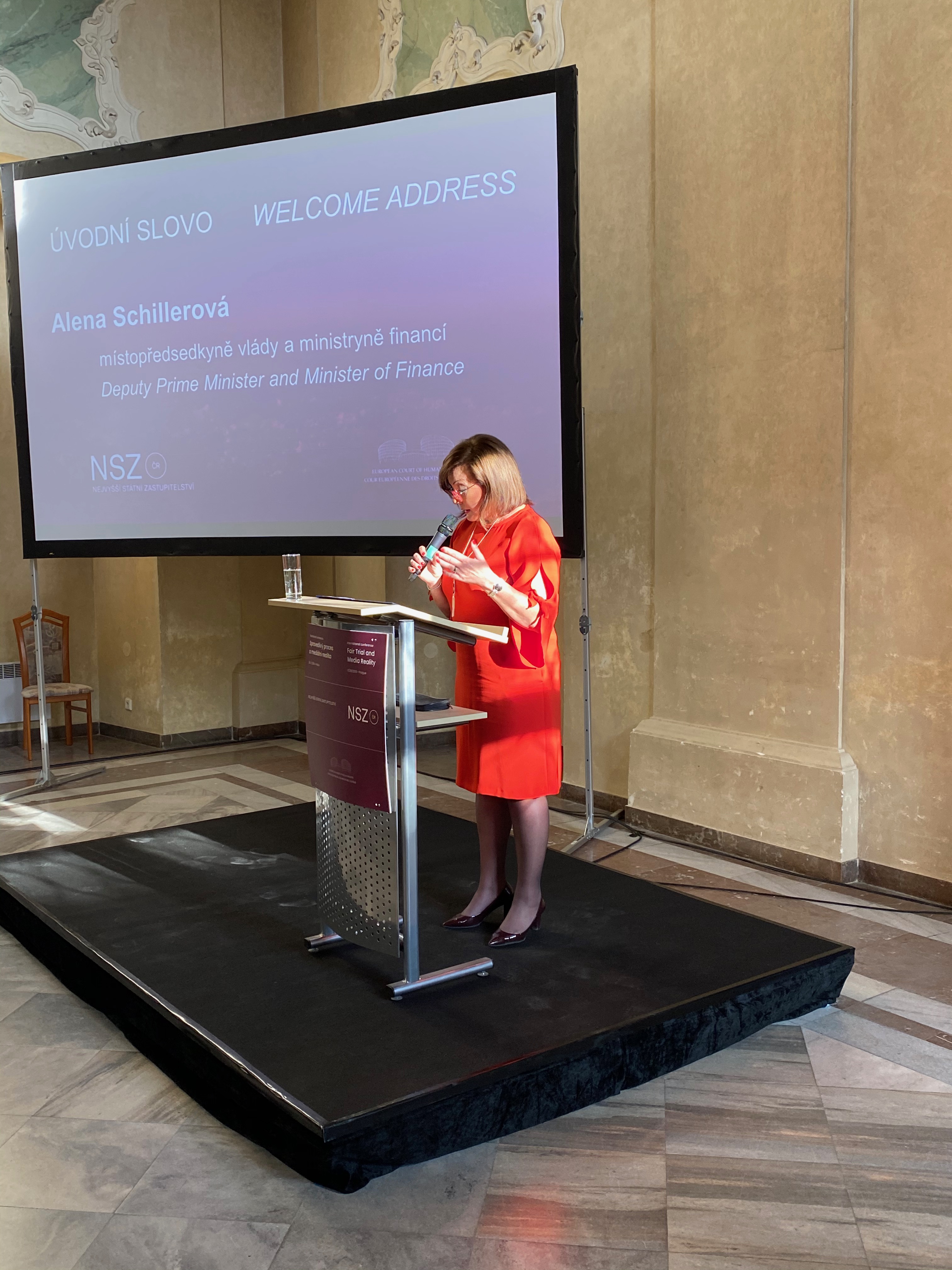Deputy Prime Minister, Minister of Finance
Alena Schillerová
Ladies and Gentlemen,
Thank you for the opportunity to address this international conference which focuses on a burning issue of relations between the media on the one hand, and a fair independent trial on the other hand. The topic of this meeting as well as the composition of guests and the audience raises big expectations. I believe that you will be able to not only address the very topical phenomenon and related risks, but also to outline solutions which will eliminate any future doubts about guarantees of a fair trial in this country.

If there had ever been a possibility to rely on self-regulation in the media, i.e. journalism ethics or journalism codex, I dare say that it is nowadays practically impossible. In my view, in economic terms, the point is it the media inflation. The number of servers presenting themselves as news servers with at least a basic periodicity, has been dramatically rising. While the number of the media houses and journalists is rising, their media food, meaning a potential content, does not significantly change. One day has still 24 hours, the government is still the only one, so is the opposition, the school year starts and ends only once a year, interesting technical innovations are not cropping up like mushrooms, crimes and road accidents are luckily not on the rise. Well, the size of the sandpit is more or less the same, but the number of sand cakes increases dozen times every day. Consequently, it results in a chase after sensation, in poor work with sources, in shallowness.
I am not an expert in media studies but I have a strong impression that the significance of a critical reflection of readers on the work of journalists, is fading away, as is the basic reason for upholding a professional self-regulation of reporters: to maintain and promote the prestige of newspapers and reporters. The quantity of the media content which is produced every minute and reproduced by many other sources, makes it almost impossible to start a serious discussion on whether an ethical or legal framework were not exceeded. The significance of one single article is so marginal that the effect of media polemics about it resembles a research of a PhD. student in a darkened archive rather than the way to make a journalist think of self-reflection.
The media is under big pressure so, often times publishing an article with a mistake or unverified information prevails over much needed verification. As a consequence, other media may win the competition to be the first to release the news. That does often a much bigger harm to the particular media than publishing a false news or unverified information.
The pressure imposed on those involved in criminal proceedings, suspects, or judges and public prosecutors face, has been increasing. We can notice a similar situation in the performance of the ministry, when in some tense moments the media attention is focused on our current, or planned moves. Analytics assess them, commentators make predictions, discussions focus on indiscriminate accusations and criticism. In principle, the ministry has to communicate, to formulate clearly the message to be conveyed to the public. That is the most appropriate way to minimalize the space for speculation.
In case the ministry must keep confidentiality rules in line with the law, the situation is more complex because the disproportion between the well-fed and relatively credible speculation and a silent institution which is bound to adhere to strict procedural rules, is considerably big. Moreover, it leaves room for false information. Yet, there is a way for defense: for instance, the appeal to lift confidentiality obligation enables the ministry to defend itself. And still that may not be a guarantee of a serious media interpretation.
I am glad to see media representatives in the audience. Because I believe that the current fragmentation of the media environment will create the space for the renaissance of a quality journalism as a norm. A quality, professional and ethical journalistic work can only exist if produced by quality, professional and ethically minded journalists, and not governed by new directives.
The meeting today is the best way to contribute to this postulate.
Thank you for organizing this conference, and I wish you a rewarding discussion.